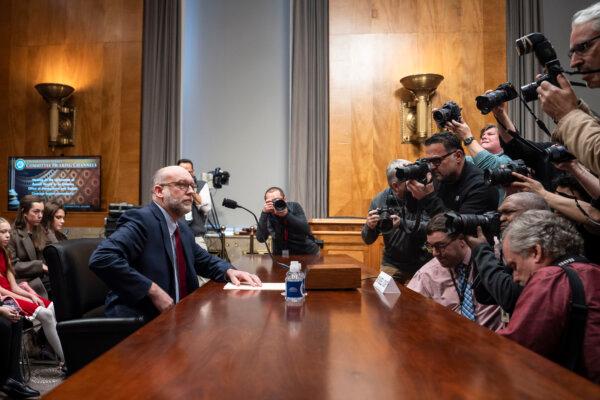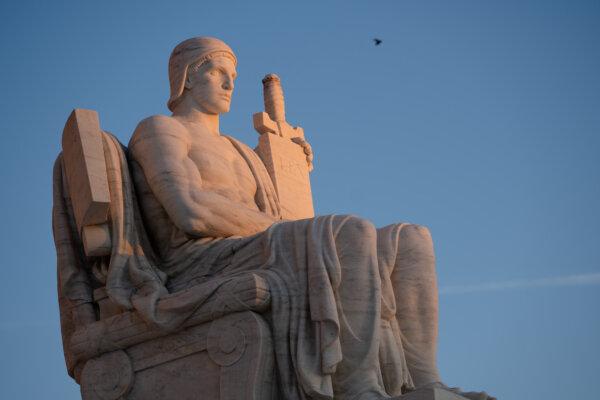Republicans Aim to Empower President to Limit Spending
Republican legislators are seeking to abolish a Watergate-era statute that restricts the president’s capacity to refuse expenditure of funds allocated by Congress.
WASHINGTON—In an effort that may provide President Donald Trump with greater leeway to implement his policies, Republicans are pushing to repeal a law that limits presidential discretion regarding the spending of specific funds appropriated by Congress.
This practice, known as impoundment, has its origins with President Thomas Jefferson.
However, since 1974, it has been regulated by the Impoundment Control Act (ICA).
Now, Republican lawmakers in both the House and Senate are advocating for the repeal of the ICA.
Sen. Mike Lee (R-Utah) and Rep. Andrew Clyde (R-Ga.) have introduced corresponding versions of their legislation designed to eliminate the Watergate-era law.
This legislative initiative in February follows claims from House Appropriations Committee Democrats that some of Trump’s executive actions breach the ICA by suggesting delays in funding for programs established under President Joe Biden.
Clyde expressed optimism in an email to The Epoch Times that he and his 25 initial cosponsors in the House would present “a strong, unified defense of President Trump’s constitutional impoundment authority.”
Lee conveyed to The Epoch Times that the suggested repeal would “help restore the original separation of powers intended by the Founders.”
Proponents of impoundment link it to Article II of the Constitution, which asserts that the president “shall ensure that the laws be faithfully executed.”
Lee characterized impoundment as “a longstanding presidential authority” utilized by presidents for over a century and a half, rooted in the Constitution.
Upon its passage in 1974, the ICA was accompanied by court rulings concerning impoundment, stemming from President Richard Nixon’s attempts to withhold expenditure of water pollution funds allocated by Congress and to terminate the Office of Economic Opportunity, instituted by his predecessor.
However, this process limits a president’s capability to avoid spending funds allocated by Congress.
The second method starts with a presidential request to Congress to permanently impound funds. The funds can then be frozen for up to 45 days during Congress’s “continuous session”—approximately 60 to 75 calendar days. During this time, Congress has the opportunity to approve the request for funding rescission.

President-elect Donald Trump’s nominee for Office of Management and Budget Director, Russel Vought, ahead of his testimony before the Homeland Security and Governmental Affairs Committee on Capitol Hill in Washington on Jan. 15, 2025. Madalina Vasiliu/The Epoch Times
“The ICA,” wrote Paoletta and Shapiro, “is unconstitutional.”
Kramer remarked to The Epoch Times in an email that both impoundment and the ICA present constitutional concerns.
“The Constitution doesn’t grant the President the power to impound funds appropriated by Congress, rendering it, akin to the ‘line-item veto,’ unconstitutional,” he noted.
The Supreme Court invalidated the Line Item Veto Act of 1996 in 1998, determining it encroached upon Congress’s authority.
Kramer expressed to The Epoch Times that the ICA is constitutionally dubious due to its deferral provision, which was ruled unconstitutional by a federal court in 1987. Although Congress amended that provision, he contends it remains flawed.
Joyce articulated to The Epoch Times that he perceives impoundment as a challenge to the separation of powers.
A fundamental dilemma is whether the president is merely conserving funds for items Congress has approved or implementing policy by cutting funding to specific programs.
“I genuinely struggle to see a more significant transfer of power from Congress to the president than allowing the president to refuse to spend money on initiatives he disapproves of,” he remarked.
“Passing it would be challenging, and even if it were to clear Congress, it would likely face judicial scrutiny,” he communicated to The Epoch Times in an email.
The potential for higher courts—including possibly the Supreme Court—to address an ICA repeal or impoundment generally remains a subject of contention, especially among lawmakers opposing the 1974 law.
“I anticipate that this discussion will unfold in the judicial system, which is why dismantling the impediment posed by the ICA is so crucial in supporting President Trump’s authority to impound funds,” Clyde remarked.
Joyce envisaged a scenario “where legal challenges arise, potentially escalating to the Supreme Court,” in which Trump or his allies advocating for broader impoundment might prevail.
Kramer indicated to The Epoch Times that the Supreme Court “has never definitively settled the question” of impoundment.
“The issue is whether they will choose to address it,” he added.

The Authority of Law statue outside the U.S. Supreme Court in Washington on Feb. 10, 2025. Madalina Vasiliu/The Epoch Times
Kramer expressed concerns that certain prospective impoundments or impoundment-like actions by the Trump administration, such as defunding the Department of Education without legislative action, might face disapproval from the court.
Paoletta, the OMB’s general counsel, noted in his 2024 article that the Supreme Court has not thoroughly grappled with the topic of impoundment.
Chief Justice John Roberts observed that when a president utilizes his authority under the Constitution, rather than relying on an act of Congress, he possesses considerable latitude.
“He may still act even if the measures he adopts are ‘incompatible with the expressed or implied will of Congress,’” Roberts stated.



